Home is virtually devoid of beats and rhythms, a trait that actively works in the albums’ favor, especially given its epic running time.
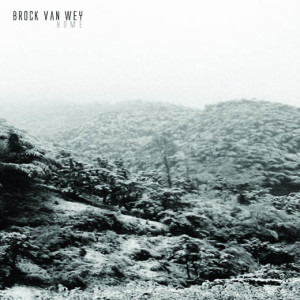 When you look at Brock van Wey‘s canon on paper, in the simplest terms he has released twenty albums from 2010 to the present day. An immediate reaction to this might be that he simply releases too much material, but if you actually parse the track listings of many of his releases, it quickly becomes apparent that any one album may only contain between three and six tracks, a number more often associated with the EP than the album. It’s his extended exploration of a single idea within each track that results in running times of anywhere between fifteen and thirty minutes per track.
When you look at Brock van Wey‘s canon on paper, in the simplest terms he has released twenty albums from 2010 to the present day. An immediate reaction to this might be that he simply releases too much material, but if you actually parse the track listings of many of his releases, it quickly becomes apparent that any one album may only contain between three and six tracks, a number more often associated with the EP than the album. It’s his extended exploration of a single idea within each track that results in running times of anywhere between fifteen and thirty minutes per track.
The limitations of the physical media on which albums are still distributed consequently dictate the number of tracks of this length you can actually release on any single “album”, blurring the lines between quantity of material and the time it takes to actually listen to it. Some people love this approach to music, while others believe it to be a tad self-indulgent. Perhaps it is, but I suspect van Wey’s work would be substantially less celebrated if he kept his work to a more traditional four to eight minutes per track format.
Releasing under his own name is something van Wey has only ever done via Stephen Hitchell’s echospace [detroit] label. His first release as Brock can Wey was 2009’s White Clouds Drift On An On, was effectively a joint release, the first disc containing five original tracks by van Wey and the second five palindromic “Interpretations” of each track by Hitchell’s Intrusion moniker. Home takes the concept even further this time, however, featuring ten brand new compositions across a packed two-and-a-half hour 2CD set, with a 2CD set of complete Intrusion Interpretations set to follow later in 2014. Each disc has it’s own title, however, indicating that it is perhaps intended that you listen in two sessions.
Followers of Bvdub who prefer his music vocal-loop-free are going to be disappointed by Home as almost every single track features them to some degree, and in most cases are utterly essential to the tracks’ success. Also like its predecessor, Home is virtually devoid of beats and rhythms, a trait that actively works in the albums’ favor, especially given its epic running time. In much of his other work, the presence of percussion and beats draws attention to the extended nature of the track, whereas their absence here actively adds to the timeless, drifting nature of the material.
“A Heart Of Darkness”
Disc One opens with Home‘s shortest track (a mere ten-and-a-half minutes!), “Mountains Will Keep Your Secrets,” featuring the kind of shimmering, pads, dizzying drones and glowing halos of sped-up vocal loops that can be found the length and breadth of the double album, accompanied by a slow, tribal drumbeat.
“Empty Houses From Above” plays on turbulent strings and reverb drenched vocal loops in its first movement before a surprisingly rare event occurs: bass. After falling into an echoing chasm, a loping, subterranean bass beat pounds the eardrums from beneath the earth as a gauzy, distorted melody buzzes and assorted vocal loops both deep and soprano echo across the soundstage. “A Heart Of Darkness” effectively follows the same pattern but is, if anything, even more memorable thanks to Van Wey’s choice of vocal loops and music box melodies.
It’s only when you look back at the album in retrospect that you realize quite how free of traditional rhythms, percussion and bass Home really is. Van Wey’s walls of sound simply don’t need them, and one can’t help feeling that their presence would actually diminish the impact of the album in general. Another pleasant surprise is that none of the tracks that approach or exceed the twenty-minute mark, are allowed to stagnate as they typically consist of several distinct movements.
Just three tracks in van Wey presents us with what is probably the pinnacle of his career to date. The majestic choirs of voices, cathedral organ keys, searing strings and a lone, perpetually sustained vocal aaah of “You Built A Kingdom, But No One Said Its Name” roll toward you like a heavenly wall of indomitable sound that washes over you like a tidal wave. A crackling buzz stings the skin at the eight minute mark, shortly after which the throng is joined by probably the purest and cleanest vocal loops on the whole record. This is van Wey at his most emotionally devastating.
“Than To Have Ever Lived At All” is a multi-spired cathedral of sound, a softly looping angelic choir accompanying grandiose, Gothic church organ drones, choral voices and strings that build in intensity until they are almost overwhelming. For some these moments may smack of excess, but for those who appreciate it when things are turned up to eleven once in a while they are simply essential.
“Can’t Go Home Without You”
The second disc opens with “Got To Carry On,” guitar strumming oddly reminiscent of “Times When I Know You’ll Be Sad” from Bioshere’s Substrata, leading into a noticeably repetitive vocal loop. It simply doesn’t hit the melodic or atmospheric high notes that made “Mountains Will Keep Your Secrets” on disc one so memorable and is one of the very few weak links on Home.
The second disc also prominently feature piano, another van Wey staple that is absent from the first disc. It first appears in glittering, jangly form on “I Wish I Could Say More Than This” and remains a primary feature through the first six minutes. There then follows a sudden lull before Secede-like field recordings of human chatter, cries and general ambient noise envelop deeply evocative strings before the whole thing is swallowed in Global Communication style pads, washes and crooning vocal loops that recalls Pentamerous Metamorphosis their delirious Chapterhouse rework album.
“We Build Steps To The Sky”—the last of Home‘s truly defining moments—begins with misleadingly loungey piano that dissolves into operatic soprano siren calls and organ treble before being joined by one of Home‘s catchiest vocal loops. Van Wey then pours on ever-increasing layers of organ bass, until the room literally shakes with it. In the second movement the sound stage is drowned in panoramic oceans of salt spray washes and a contralto vocal drone.
“Can’t Go Home Without You” presents more of the same but this time over a rather too soupy and unstructured nineteen minutes that lack the spark and immediacy of other tracks, while album finale “Walk Through Walls (For SH)” is nice enough but doesn’t really possess the emotional weight or melodic hook one might have wished for. That said, reaching these final two tracks is something of a Herculean effort in any case.
Arguably, Home is too grand in scale and epic in duration to be digestible in a single sitting, and it’s certainly an experience you have to carefully plan for. There can be little doubt, however, that Home is one of the finest expressions of Brock van Wey’s work to date, as epic in structure, density, atmosphere and emotional weight as it is in length. You need this.
Home is available on echospace [detroit].






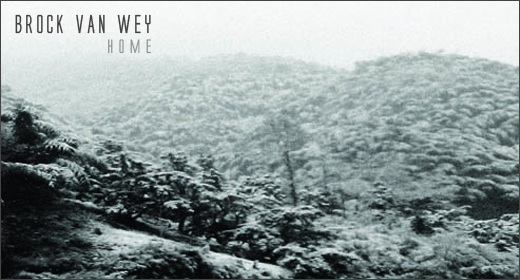
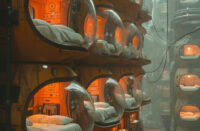






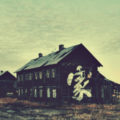
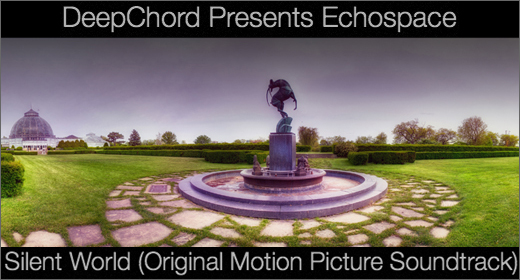



![Hasbeen :: Bunker Symphonies II (Clean Error) — [concise]](https://igloomag.com/wp/wp-content/uploads/2025/04/hasbeen-bunker-symphonies-ii_feat-75x75.jpg)
![Extrawelt :: AE-13 (Adepta Editions) — [concise]](https://igloomag.com/wp/wp-content/uploads/2025/04/extrawelt-ae-13_v_feat-75x75.jpg)
![Beyond the Black Hole :: Protonic Flux EP (Nebleena) — [concise]](https://igloomag.com/wp/wp-content/uploads/2025/04/beyond-the-black-hole-protonic-flux_feat-75x75.jpg)
![H. Ruine, Mikhail Kireev :: Imagined / Awakenings (Mestnost) — [concise]](https://igloomag.com/wp/wp-content/uploads/2025/04/h-ruine-mikhail-kireev-imagined-awakenings_feat2-75x75.jpg)


![Squaric :: 808 [Remixes] (Diffuse Reality) — [concise]](https://igloomag.com/wp/wp-content/uploads/2025/04/squaric-808-remixes_feat-75x75.jpg)

